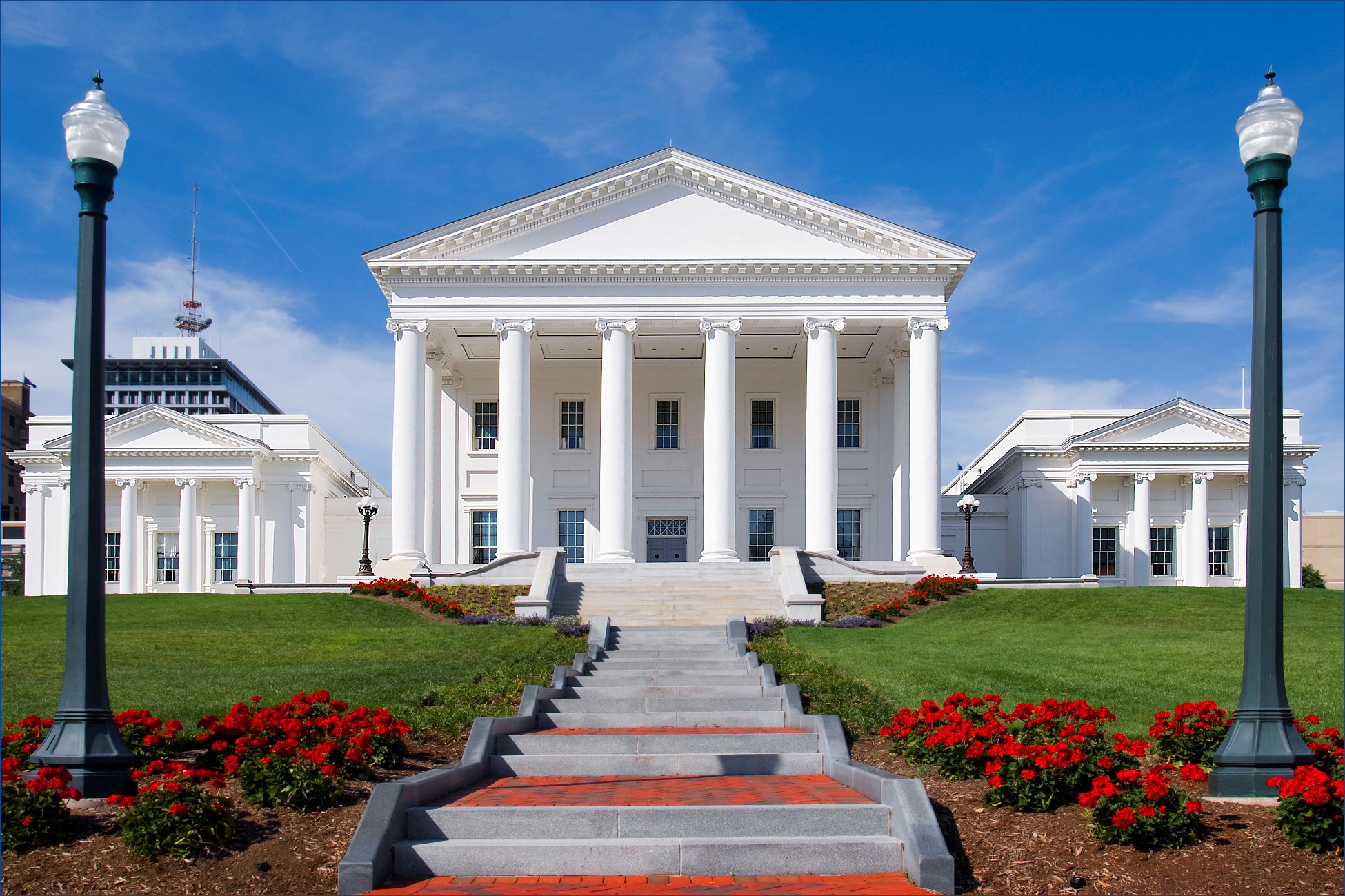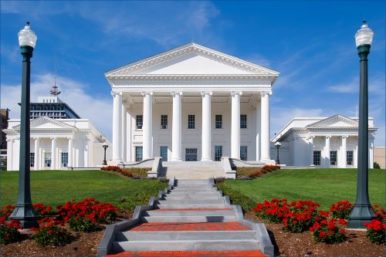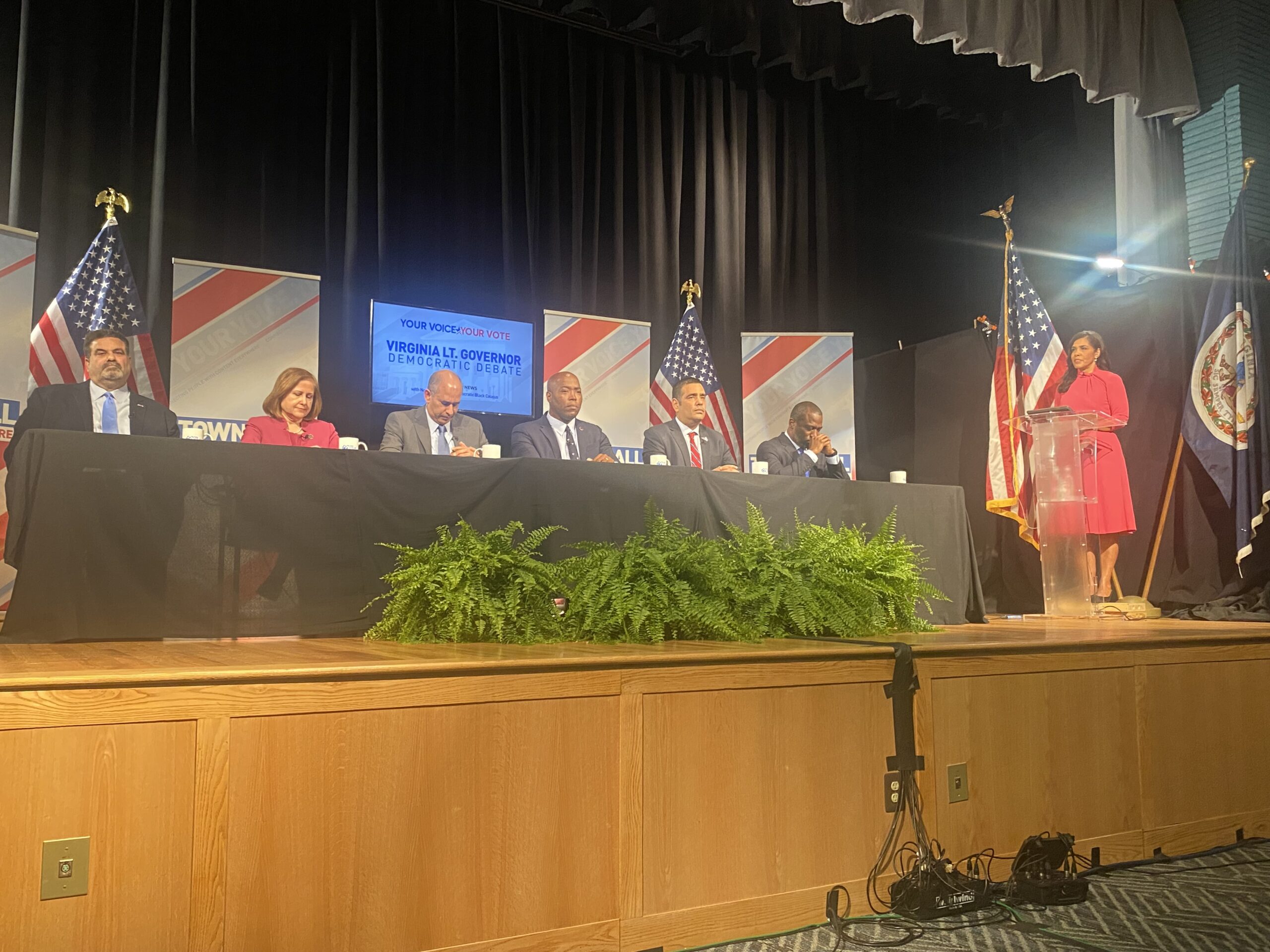U.S. Supreme Court grants stay in challenge to Youngkin’s voter purge order
by Markus Schmidt and Charlotte Rene Woods, Virginia Mercury
The U.S. Supreme Court on Wednesday granted a temporary stay in the ongoing legal dispute over Gov. Glenn Youngkin’s executive order that resulted in the removal of over 6,000 Virginians from the state’s voter rolls.
The stay pauses a lower court’s ruling that would have required the state to restore 1,600 voters to the rolls, allowing Youngkin’s directive to remain in effect and voter removals to continue as the case proceeds. The high court’s decision drew praise from Youngkin and laments from the voter rights groups suing him and the state.
The court’s six conservative justices supported the stay, with the three liberals dissenting.
Youngkin in a statement hailed the court’s decision as “a victory for commonsense and election fairness.”
“I am grateful for the work of Attorney General Jason Miyares on this critical fight to protect the fundamental rights of U.S. citizens. Clean voter rolls are one important part of a comprehensive approach we are taking to ensure the fairness of our elections,” Youngkin said, adding that the ruling would ensure a secure election on Nov. 5.
“Virginians can cast their ballots on Election Day knowing that Virginia’s elections are fair, secure, and free from politically-motivated interference,” he said.
The order comes after the Virginia Republican Party filed an amicus brief Tuesday supporting Youngkin’s efforts, arguing that removing noncitizens from the voter rolls should not be delayed due to the federally mandated “quiet period” — a buffer period around elections meant to avoid disruptions to voter records.
The Republican brief argues that the governor’s order was based on data from the Department of Motor Vehicles and focused on noncitizens, and thus does not constitute a “systematic” voter purge restricted by the quiet period.
Opposition to the order has come from various groups, including former GOP lawmakers such as Barbara Comstock, Denver Riggleman, and Adam Kinzinger, who filed a separate brief urging the Supreme Court to deny the stay. They argue that hastily removing voters could lead to eligible citizens losing their rights, citing concerns over the potential exclusion of legitimate voters.
Miyares and Youngkin’s administration maintain that the executive order is a necessary step for election security.
In a statement released Wednesday, Miyares called the Supreme Court ruling a win for election integrity and the rule of law.
“While I am gratified the court moved so quickly, I remain deeply concerned and alarmed that the Biden-Harris administration chose to execute this maneuver just 25 days before an election,” he said of the lawsuit filed earlier this month by the Justice Department that challenges Youngkin’s executive order.
Critics, however — including the Virginia Center for Immigrant Rights and the League of Women Voters’s Virginia chapter, who are suing Youngkin and the state — argue that the purge risks disenfranchising Virginians and disproportionately impacts minority voters, calling the move part of a larger trend of restrictive voting policies. Representatives of the groups and their lawyers said they were “disappointed” with the Supreme Court’s decision in a virtual press conference held Wednesday afternoon.
Ryan Snow, counsel with the Lawyers Committee For Civil Rights Under Law, called the decision by the nation’s highest court an “abuse of power.”
Bert Bayou with African Communities Together said that the state’s and high court’s actions are “sending a disturbing message that (immigrant’s) voices are not valued, not wanted, and not American.”
“We are living in a political climate that is fanning the flames of xenophobia,” he added.
Orion Danjuma, counsel with Protect Democracy, noted how a similar situation was also recently settled in Alabama. A federal judge blocked Alabama’s voter roll purge program after the Department of Justice had filed a similar suit last month as it did to Virginia. When Virginia requested its stay to the U.S. Supreme Court, Alabama’s Attorney General signed onto an amicus brief in support of the request.
Danjuma stressed that the programs “disenfranchise eligible voters” and that organizations like his will continue to challenge them.
“While this is a serious setback to voters for this election, we want to make clear that we will be continuing to expose problems with the state’s program so that they can be corrected in the future,” he said.
State lawmakers react
Virginia’s statehouse leaders shared a variety of responses to the news on Wednesday, reflecting both support for SCOTUS’ decision and dismay due to it.
Virginia House Speaker Don Scott, D-Portsmouth, who has been outspoken in his opposition to Youngkin’s executive order, posted to X that the stay SCOTUS granted “does not equal a win.”
“Unfortunately, The Governor’s scheme to block legal eligible (Virginia) voters has temporarily worked. It’s a sad day for the Commonwealth and the country,” he added.
In a statement, state Sen. John McGuire, a member of the body’s Privileges and Elections subcommittee and a candidate for Virginia’s 5th Congressional District seat, commended the Youngkin administration for “leading the charge to keep our elections secure.”
“This is simple: noncitizens shouldn’t be able to vote, and I’m glad the Supreme Court agrees,” McGuire stated.
As chair of the Senate Privileges and Elections Committee, Sen. Aaron Rouse, D-Virginia Beach had written a letter to Commissioner of Elections Susan Beals on Sep. 27, seeking more information on how the removals were handled under Youngkin’s Aug. 7 executive order and whether non-citizens were facing prosecution for attempting to register.
In his letter Rouse referenced a Fox News interview Youngkin did the day of his executive order where he claimed that his order would lead to “immediate” removal of people and subsequent prosecution.
Rouse asked Beals if registrars were referring people to commonwealth’s attorneys. In her Oct. 8 response to Rouse, Beals did not answer whether registrars had referred non-citizens to local prosecutors.
Plaintiffs in the case against the state argue there has been no evidence of people being prosecuted for attempting to vote illegally.
“I have tried to get straight answers from this Administration,” Rouse said Wednesday. “It took the U.S. Department of Justice filing suit and a federal judge forcing the Youngkin administration to disclose the names of those removed and confirm what we feared: that in fact eligible Virginia voters have been stripped from the rolls.”
He added that he and members of his committee will “work to ensure that these disenfranchised voters are educated as to the procedures for casting a valid provisional ballot.”
What the situation could mean for Virginia voters, on Election Day and beyond
With the stay in place, the case is likely to continue drawing national attention as the election nears, spotlighting debates over voting rights, citizenship and electoral integrity.
It could also lead to confusion at the polls next Tuesday, because it remains unclear what information voters who have been purged would need to show for same-day registration, said Henry Chambers, a professor for constitutional law at the University of Richmond School of Law.
“The administration is claiming that there is sufficient evidence to knock someone off the rolls. If that’s true, and if a registrar has said this person shouldn’t be on the roll, I’m not sure what kind of information would convince the registrar that the person should be on the rolls and should have their provisional ballot counted. And that’s a tricky issue.”
Chambers added that it also remains unclear what the Supreme Court ruling means for the federal suit filed by the Virginia Coalition for Immigrant Rights and the League of Women Voters of Virginia earlier this month which alleges that the process used to purge the rolls violates the 90-day quiet period and therefore disenfranchises eligible voters while raising concerns over transparency and accuracy in the state’s voter registration system.
“In theory, the case goes back to the drawing board and you need to run it as a sort of a regular merits case as opposed to just an injunction case. But the problem with that is that the point of the case is that the 90-day quiet period is going to be over once election day is done,” Chambers said. “Then the question becomes, is the purge program in and of itself unlawful in general?’”
Some state lawmakers have signaled they are ready to tackle that question, and the law that undergirds it.
State Sen. Travis Hackworth, R-Tazewell County, said in a phone interview Wednesday that in the 2025 legislative session, he would “be open to looking at anything” in the 2006 law that would limit potential confusion at the polls.
“The bottom line is, if you are a U.S. citizen, we want you to vote, it’s your right and duty to vote,” said Hackworth, a member of the Senate Privileges & Election who was “very disheartened” when the lower court ruled to halt Youngkin’s order.
If any among the affected 1,600 Virginians believe they have been removed from the voter rolls in error, Hackworth urged them to still cast a provisional ballot bringing documentation proving their citizenship status and let the local electoral board “figure that out.”
“I think that maybe we are kind of overcomplicating this process, because anybody still has the right on the day of to say, ‘I have been purged from the voter rolls, I am a citizen of the United States, and I want to vote.’ If you have that much conviction to go to the polls and vote provisional, you will bring something that’s going to back up your claim that you are a citizen.”
(Virginia Mercury is part of States Newsroom, a nonprofit news network supported by grants and a coalition of donors as a 501c(3) public charity. Virginia Mercury maintains editorial independence. Contact Editor Samantha Willis for questions: info@virginiamercury.com. Follow Virginia Mercury on Facebook and X.)



